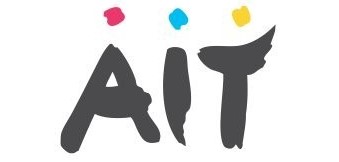MSc in Data Analysis
Key Points
large amounts of data, often referred to as Big Data, to draw conclusions and insights from the information they contain. Some examples of data analytics applications include real-time fraud detection, complex competitive business analysis, website optimization, intelligent management of air, road and other traffic, and consumer spending patterns.
Big Data presents three main problems: there is too much data to handle easily; the speed of data entry and exit makes it difficult to analyze; and the variety and type of data sources are too large to assimilate. With the right analytics and techniques, this big data can deliver hidden and non-hidden information, patterns, and relationships from multiple sources using data analysis techniques.
Athlone Institute of Technology, recently voted 2018 Institute of Technology of the Year, has developed an industry-focused contemporary master’s program that will equip graduates with the skills and aptitudes necessary to excel in the emerging field of Big Data and Data Analytics. This program will ensure that you can understand the context of the data, apply the appropriate techniques, and use the most relevant tools to generate knowledge about that data.
What will I experience?
The program lasts for one calendar year, starting in September and consists of three semesters. Semesters 1 and 2 will incorporate three key pillars of data analysis: data, tools and techniques, and analysis. Each pillar overlaps the other to provide a consistent and unified set of basic skills in data analysis. The third semester will consist of an industry-led project.
At the center of the discipline is data. In this pillar, students will develop their skills in areas including database technologies, data manipulation languages, including SQL, and the R programming language. To understand data, various techniques will be taught, including programming for Big Data. , statistics and probabilities and data interpretation. Interwoven within these modules is the use of industry standard data analysis software tools. The last pillar of the program is analysis. In these modules, students will develop skills to become data savvy professionals, gaining insights into the data from which strategic decisions can be made.
Applied research project.
In the third semester of the program, students will complete a data analysis project and an associated thesis of 20,000 words.
Career opportunities
Since data analytics is a relatively new and emerging field, the analytics application spans a wide range of industries, including finance, marketing, healthcare, and biopharma. Career opportunities for graduates of this program include:
- Data analyst
- Data Scientist
- Performance Analyst and Analysis
- Data Operations Analyst
- Financial Market Analyst
- Business Intelligence Analyst
- Customer insight analyst
Program structure
Admission requirements
Students applying to enter undergraduate or graduate programs must provide the following information directly to the International Office, Athlone Institute of Technology on or before May 1 for programs beginning in September:
- Complete AIT application form
- Detailed CV
- Certified transcripts of test results and English translations of grades not issued in English
- Evidence of ability to follow classes in the English language (which must satisfy the entrance requirements to the Institute for the following programs)
- Basic level program: Certificate in English for academic studies: Minimum IELTS 4.5 or equivalent
- Pre-session summer program in English from June to August: minimum IELTS 5.0 or equivalent
- Undergraduate programs: Minimum IELTS 5.5 without Band less than 5.0
- Postgraduate programs: Minimum IELTS 6.0 without Band less than 5.5 *
* Please note that some graduate programs require a minimum of IELTS 6.5
- Letter of recommendation from the corresponding department head of the institution itself
- Any other relevant information about qualifications or previous work experience
For this program:
A level 8 or equivalent Bachelor’s degree in Business, Science or Engineering, with a minimum grade of 2.1 (60%), comprising at least 30 ECTS credits in any combination of mathematics, computer science or engineering. According to the institute’s policies, non-native English speakers must have an IELTS level of 6.5 or higher.
All applicants will be subject to an interview.
Learn more about our educational offer
Request your quote
An advisor will contact you by phone and email within the following hours

